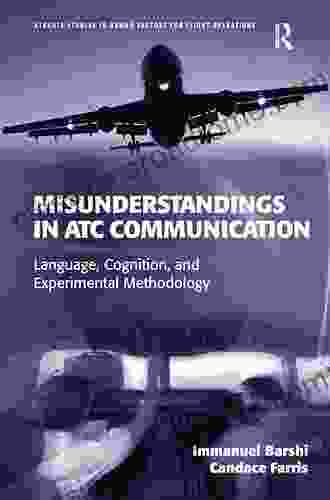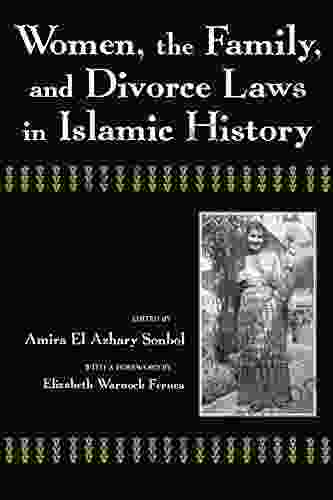Women, the Family, and Divorce Laws in Islamic History: Navigating Contemporary Issues

In the tapestry of human history, the role of women within the family and the dynamics of divorce have undergone profound transformations. Islamic law, rooted in the Quran and the teachings of the Prophet Muhammad, has significantly shaped these aspects in Muslim societies. However, as societies evolve and contemporary challenges emerge, the application and interpretation of Islamic divorce laws have become a topic of intense debate and discussion.
Historical Evolution of Women's Rights in Marriage and Divorce
In pre-Islamic Arabia, women had limited rights in marriage and divorce. They were often considered chattel, with little say in their marital status. Islam brought about significant reforms, granting women the right to consent to marriage, to own property, and to seek divorce under certain circumstances. The Quran (4:34) states, "Men are in charge of women by [right of] what God has given one over the other and what they spend [for maintenance] from their wealth."
5 out of 5
| Language | : | English |
| File size | : | 1625 KB |
| Text-to-Speech | : | Enabled |
| Screen Reader | : | Supported |
| Enhanced typesetting | : | Enabled |
| Print length | : | 375 pages |
However, the interpretation and implementation of these rights have varied throughout history and across different cultures. In some societies, women's rights have been upheld and expanded, while in others, patriarchal norms have limited their autonomy.
Contemporary Issues in Islamic Divorce Laws
Today, Muslim societies face a multitude of contemporary issues related to divorce laws. These include:
- Unequal access to divorce: In many Muslim-majority countries, men have greater access to divorce than women. This disparity stems from traditional interpretations of Islamic law that give men the unilateral right to divorce (talaq) without the need for justification.
- Lack of financial protection: Women who seek divorce often face financial hardship due to the lack of adequate property rights or maintenance payments. This is particularly concerning in societies where women have traditionally been denied access to education and employment.
- Child custody: The custody of children following divorce is another contentious issue. In most Muslim-majority countries, fathers are granted preferential rights to custody based on the premise that they are the primary financial providers.
Reform Efforts and Challenges
Recognizing the need for reform, many scholars, activists, and policymakers have advocated for changes to Islamic divorce laws. These efforts aim to promote gender equality, protect women's rights, and address the challenges faced by divorced individuals and families.
However, reform efforts have encountered significant challenges, including resistance from conservative elements within society and the belief that altering religious laws would undermine the sanctity of marriage. Nevertheless, there have been some notable successes:
- Abolition of unilateral divorce: Some Muslim-majority countries, such as Tunisia and Morocco, have abolished the practice of unilateral divorce, giving women the right to initiate divorce proceedings on the same grounds as men.
- Enhanced financial protection: Reforms in countries like Jordan and Egypt have strengthened women's financial rights by requiring husbands to provide adequate maintenance payments during and after divorce.
- Shared custody: In a few countries, such as Lebanon, shared custody has been introduced, giving both parents equal rights and responsibilities in raising their children.
The relationship between women, the family, and divorce laws in Islamic history is complex and multifaceted. While Islam brought about significant reforms, the interpretation and implementation of these laws have varied over time and across cultures.
In the contemporary era, Muslim societies face numerous challenges related to divorce laws. Unequal access to divorce, lack of financial protection, and limited child custody rights for women persist in many countries. Reform efforts have emerged in response to these issues, but they have encountered significant resistance.
Navigating these contemporary issues requires a nuanced understanding of Islamic law, a commitment to gender equality, and a willingness to engage with diverse perspectives. By embracing a progressive and inclusive interpretation of Islamic teachings, we can create a more just and equitable society for all.
5 out of 5
| Language | : | English |
| File size | : | 1625 KB |
| Text-to-Speech | : | Enabled |
| Screen Reader | : | Supported |
| Enhanced typesetting | : | Enabled |
| Print length | : | 375 pages |
Do you want to contribute by writing guest posts on this blog?
Please contact us and send us a resume of previous articles that you have written.
 Book
Book Novel
Novel Page
Page Chapter
Chapter Text
Text Story
Story Genre
Genre Reader
Reader Library
Library Paperback
Paperback E-book
E-book Magazine
Magazine Newspaper
Newspaper Paragraph
Paragraph Sentence
Sentence Bookmark
Bookmark Shelf
Shelf Glossary
Glossary Bibliography
Bibliography Foreword
Foreword Preface
Preface Synopsis
Synopsis Annotation
Annotation Footnote
Footnote Manuscript
Manuscript Scroll
Scroll Codex
Codex Tome
Tome Bestseller
Bestseller Classics
Classics Library card
Library card Narrative
Narrative Biography
Biography Autobiography
Autobiography Memoir
Memoir Reference
Reference Encyclopedia
Encyclopedia Andrew J Dunar
Andrew J Dunar Andrew Gutmann
Andrew Gutmann Amy Brooks
Amy Brooks Cory Graff
Cory Graff Andrzej Szczeklik
Andrzej Szczeklik Anne Palagruto
Anne Palagruto Rob Percival
Rob Percival Amorah Quan Yin
Amorah Quan Yin Andy Leonard
Andy Leonard Ellen L Bowen
Ellen L Bowen Andrew Theitic
Andrew Theitic Amy Neustein
Amy Neustein Andy Bakas
Andy Bakas Anjum Altaf
Anjum Altaf Andrew Buchan
Andrew Buchan Amir Javidinejad
Amir Javidinejad Jabin Sims
Jabin Sims Jeanie Stiles
Jeanie Stiles Lorena Siminovich
Lorena Siminovich Hillary Hawkins
Hillary Hawkins
Light bulbAdvertise smarter! Our strategic ad space ensures maximum exposure. Reserve your spot today!

 Dave SimmonsTreehouses, Tepees, and Magical Hideouts: The Ultimate Guide to Building Your...
Dave SimmonsTreehouses, Tepees, and Magical Hideouts: The Ultimate Guide to Building Your...
 Shannon SimmonsIgnite Your Curiosity with "25 Great Projects, Activities, and Experiments:...
Shannon SimmonsIgnite Your Curiosity with "25 Great Projects, Activities, and Experiments:... Derek CookFollow ·17.6k
Derek CookFollow ·17.6k Deacon BellFollow ·2.2k
Deacon BellFollow ·2.2k Harold BlairFollow ·8.2k
Harold BlairFollow ·8.2k Alexander BlairFollow ·14.7k
Alexander BlairFollow ·14.7k William FaulknerFollow ·3.1k
William FaulknerFollow ·3.1k Bryan GrayFollow ·4.7k
Bryan GrayFollow ·4.7k Cody RussellFollow ·18k
Cody RussellFollow ·18k Chase MorrisFollow ·15.1k
Chase MorrisFollow ·15.1k

 Braden Ward
Braden WardThe True Story of Murder and Betrayal
In a small town where...

 W. Somerset Maugham
W. Somerset MaughamUnraveling the Complexities of Human Language: A...
Language is a fundamental aspect of human...

 Ibrahim Blair
Ibrahim BlairTrue Crime Tales That Will Keep You on the Edge of Your...
Prepare to be...

 Rick Nelson
Rick NelsonPatterns In Rhyme: A Journey of Discovery with Patrick...
Welcome to the...

 Edgar Hayes
Edgar HayesWithout Pity: Unmasking the Evil Within
In the realm of true...

 Cooper Bell
Cooper BellFannie Lou Hamer's Indelible Legacy: Unraveling the...
The Black Freedom Movement, a pivotal...
5 out of 5
| Language | : | English |
| File size | : | 1625 KB |
| Text-to-Speech | : | Enabled |
| Screen Reader | : | Supported |
| Enhanced typesetting | : | Enabled |
| Print length | : | 375 pages |








